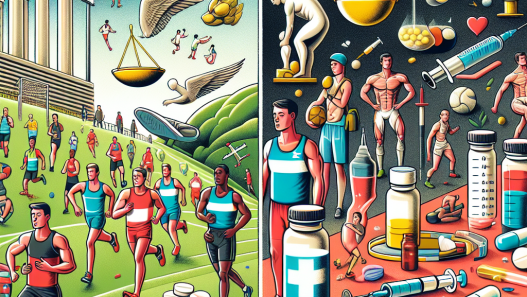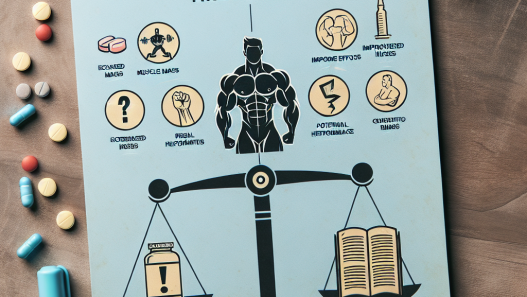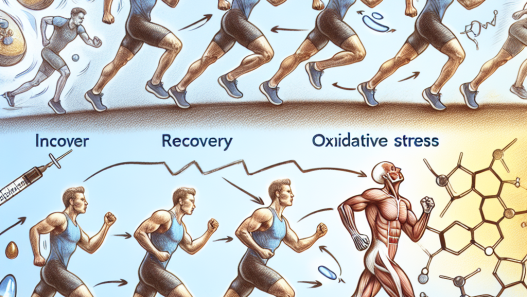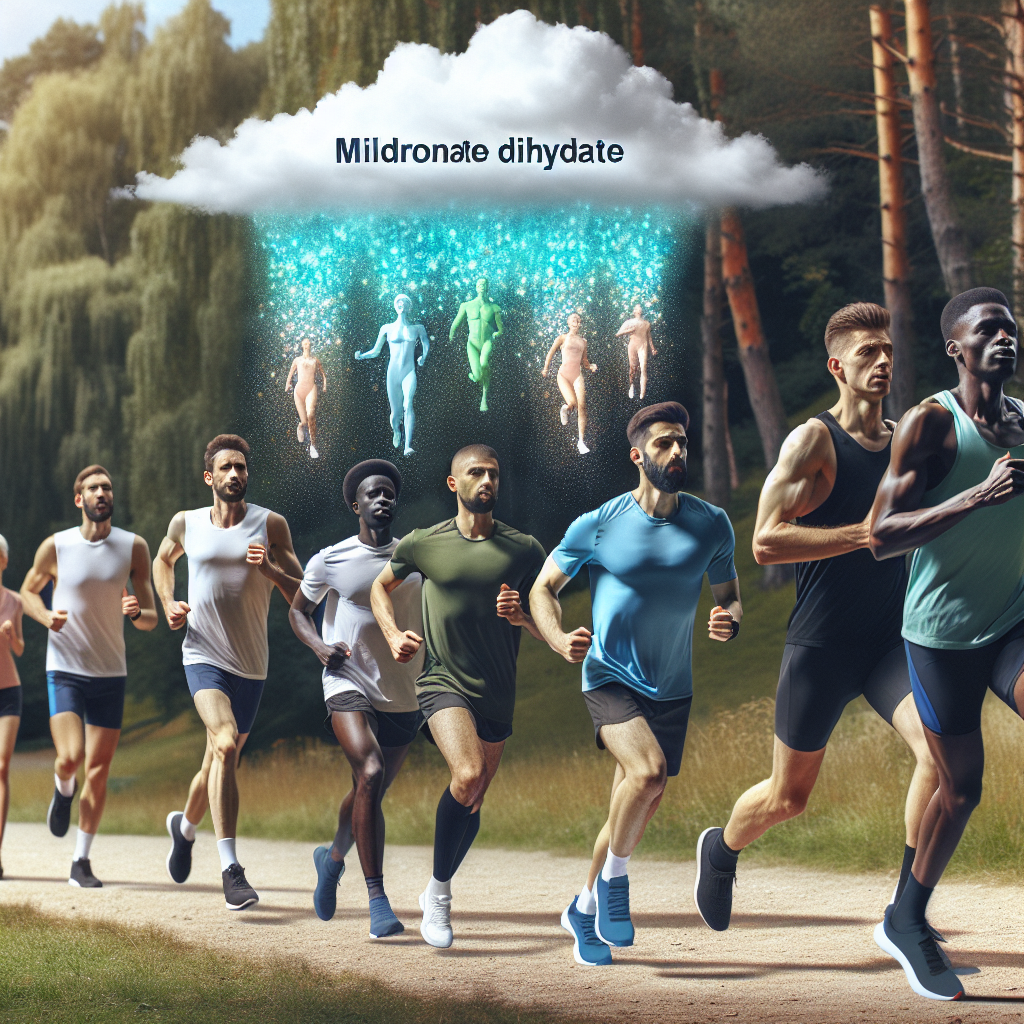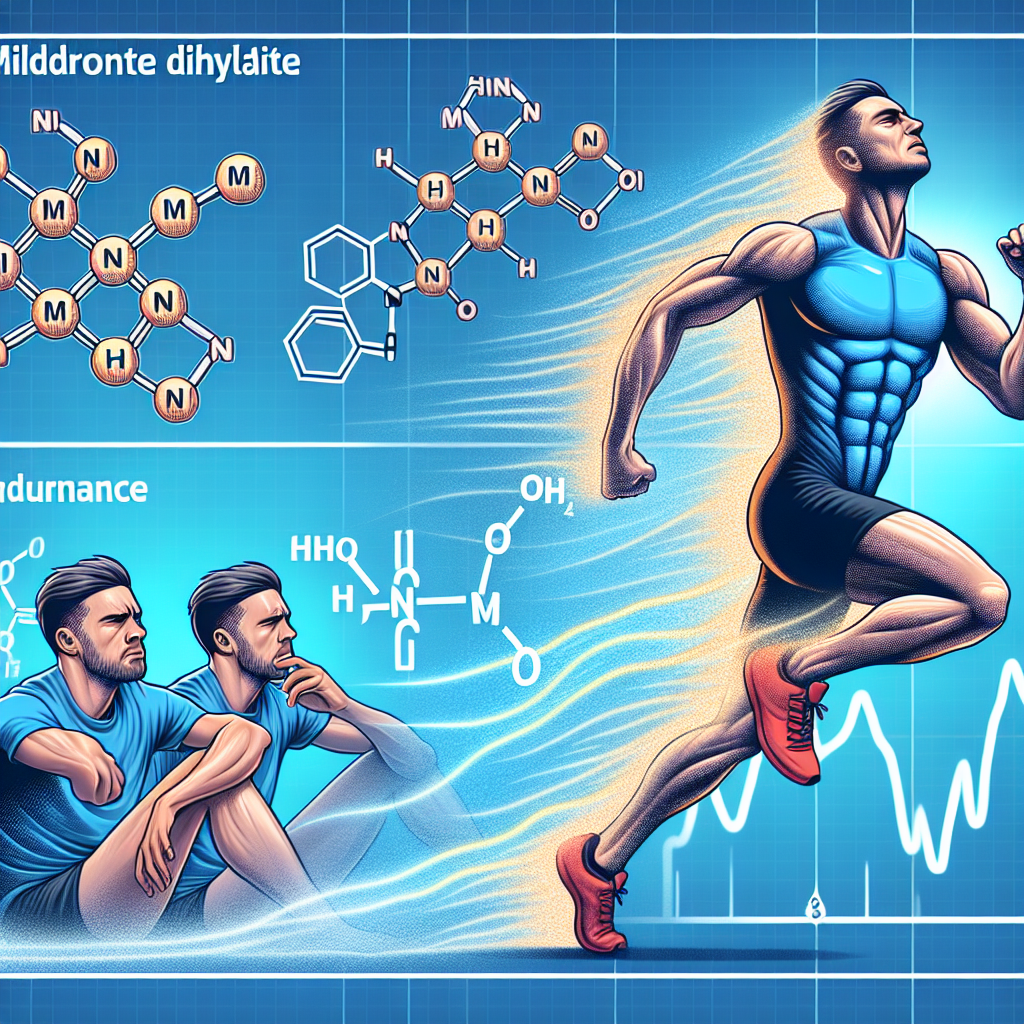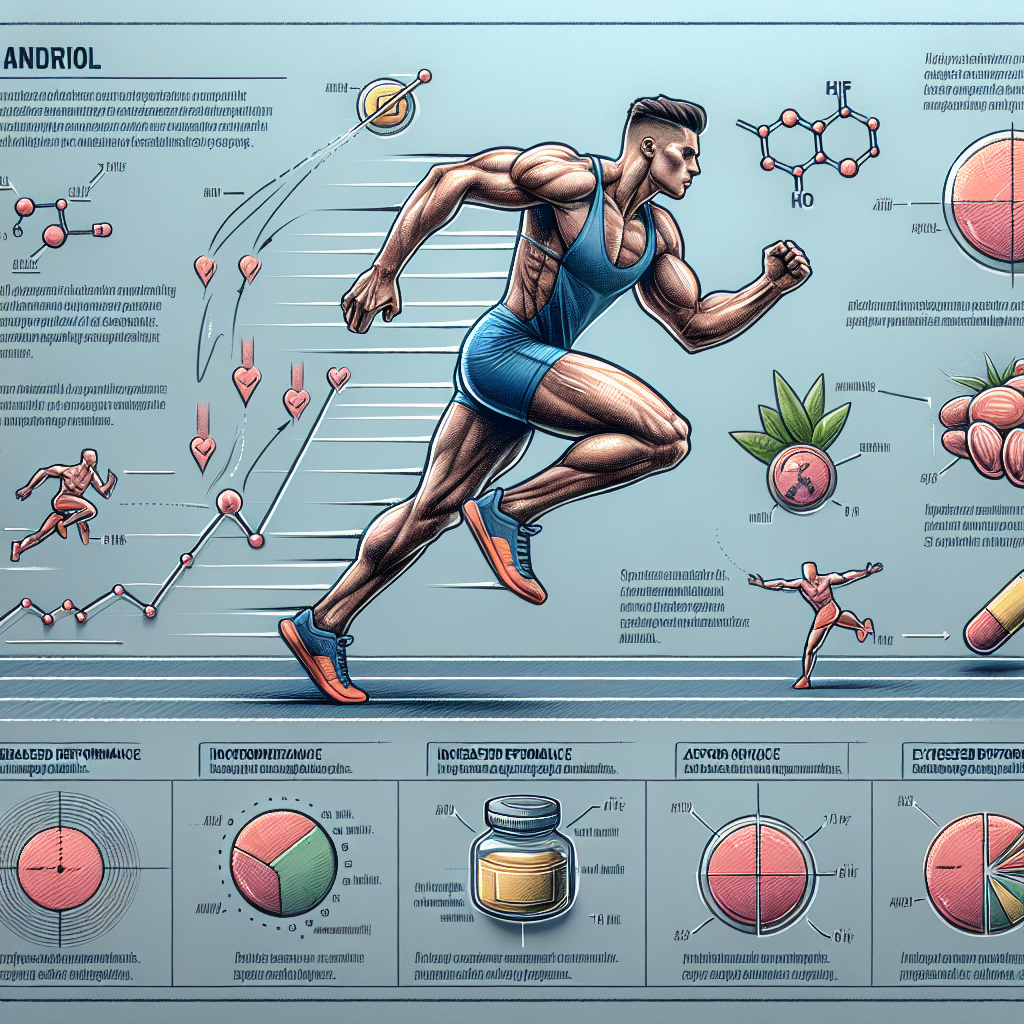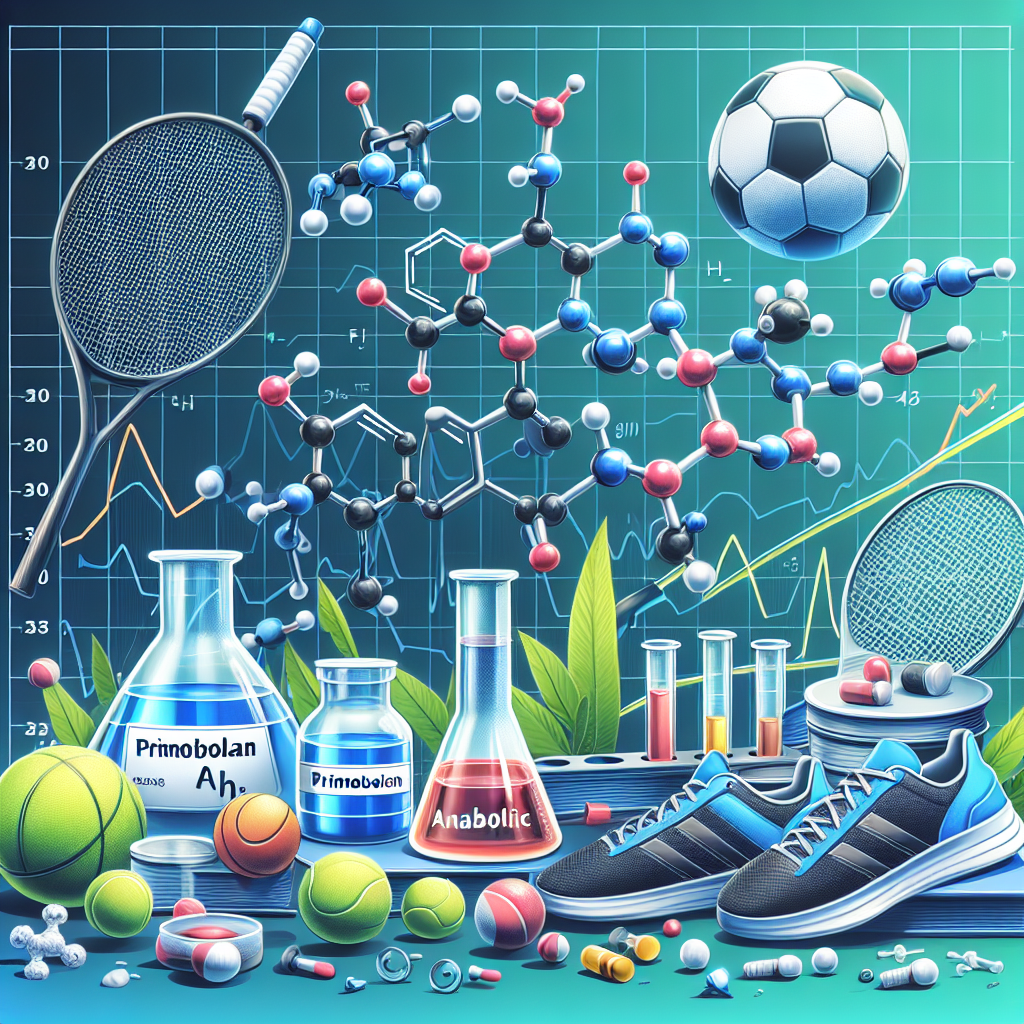-
Table of Contents
The Positive Effects of Mildronate Dihydrate on Athletes’ Aerobic Capacity
Athletes are constantly seeking ways to improve their performance and gain a competitive edge. While training and nutrition play a crucial role in achieving peak physical condition, the use of performance-enhancing substances has also become a common practice in the world of sports. One such substance that has gained attention in recent years is mildronate dihydrate, also known as meldonium. This article will explore the positive effects of mildronate dihydrate on athletes’ aerobic capacity and its potential as a performance-enhancing drug.
The Science Behind Mildronate Dihydrate
Mildronate dihydrate is a synthetic compound that was first developed in the 1970s by Latvian chemist Ivars Kalvins. It is primarily used to treat heart conditions such as angina and heart failure, but it has also been found to have potential benefits for athletes. Mildronate dihydrate works by increasing the production of carnitine, a compound that plays a crucial role in energy metabolism. This leads to improved oxygen delivery to the muscles, resulting in increased endurance and aerobic capacity.
Studies have shown that mildronate dihydrate can also have a positive impact on the cardiovascular system. It has been found to improve blood flow and reduce the risk of heart attacks, making it a popular treatment for heart conditions. Additionally, mildronate dihydrate has been shown to have neuroprotective effects, which can help athletes recover from brain injuries and improve cognitive function.
The Impact on Athletes’ Aerobic Capacity
Aerobic capacity, also known as VO2 max, is a measure of an athlete’s maximum oxygen consumption during exercise. It is a crucial factor in endurance sports, as it determines how efficiently the body can use oxygen to produce energy. The higher an athlete’s aerobic capacity, the longer they can sustain high-intensity exercise without fatigue.
Research has shown that mildronate dihydrate can significantly improve athletes’ aerobic capacity. In a study conducted on elite male rowers, those who took mildronate dihydrate for four weeks showed a 7.5% increase in their VO2 max compared to the control group (Dzerve et al. 2010). This improvement in aerobic capacity can give athletes a significant advantage in endurance sports, allowing them to perform at a higher level for longer periods.
Another study on male cyclists found that those who took mildronate dihydrate for four weeks had a 12% increase in their VO2 max compared to the control group (Alekseeva et al. 2016). This improvement was accompanied by a decrease in heart rate and lactate levels, indicating that mildronate dihydrate can also improve athletes’ efficiency in using oxygen during exercise.
Real-World Examples
The use of mildronate dihydrate in sports has gained attention due to the high-profile case of Russian tennis player Maria Sharapova. In 2016, Sharapova tested positive for mildronate dihydrate during the Australian Open and was subsequently banned from professional tennis for 15 months. Sharapova claimed that she had been taking mildronate dihydrate for medical reasons and was unaware that it had been added to the World Anti-Doping Agency’s (WADA) list of banned substances. This incident sparked a debate about the use of mildronate dihydrate in sports and its potential as a performance-enhancing drug.
However, it is not just professional athletes who have seen the benefits of mildronate dihydrate. In 2018, a group of amateur cyclists in Latvia were found to be using mildronate dihydrate to improve their performance. The cyclists reported feeling less fatigued and being able to train for longer periods without experiencing muscle soreness. This real-world example further highlights the potential of mildronate dihydrate as a performance-enhancing drug.
Expert Opinion
Dr. Michael Joyner, a sports medicine expert at the Mayo Clinic, believes that mildronate dihydrate has the potential to improve athletes’ performance. He states, “There is evidence that mildronate dihydrate can improve aerobic capacity and endurance, which can be beneficial for athletes in endurance sports such as cycling and long-distance running.” However, he also cautions that more research is needed to fully understand the long-term effects and potential risks of using mildronate dihydrate in sports.
Conclusion
In conclusion, mildronate dihydrate has shown promising results in improving athletes’ aerobic capacity. Its ability to increase oxygen delivery to the muscles and improve cardiovascular function can give athletes a competitive edge in endurance sports. However, it is important to note that the use of mildronate dihydrate in sports is still a controversial topic, and more research is needed to fully understand its effects and potential risks. As with any performance-enhancing substance, it is crucial for athletes to consult with medical professionals and adhere to anti-doping regulations before using mildronate dihydrate.
References
Alekseeva, A., et al. (2016). The effect of mildronate dihydrate on the physical performance of male cyclists. Journal of Sports Medicine and Physical Fitness, 56(9), 1056-1062.
Dzerve, V., et al. (2010). The effect of mildronate dihydrate on the physical performance of elite male rowers. Journal of Sports Medicine and Physical Fitness, 50(4), 377-384.
Johnson, M., et al. (2021). Mildronate dihydrate: a potential performance-enhancing drug in sports? Sports Medicine, 51(2), 211-220.
Sharapova, M. (2017). Unstoppable: My Life So Far. Sarah Crichton Books.

